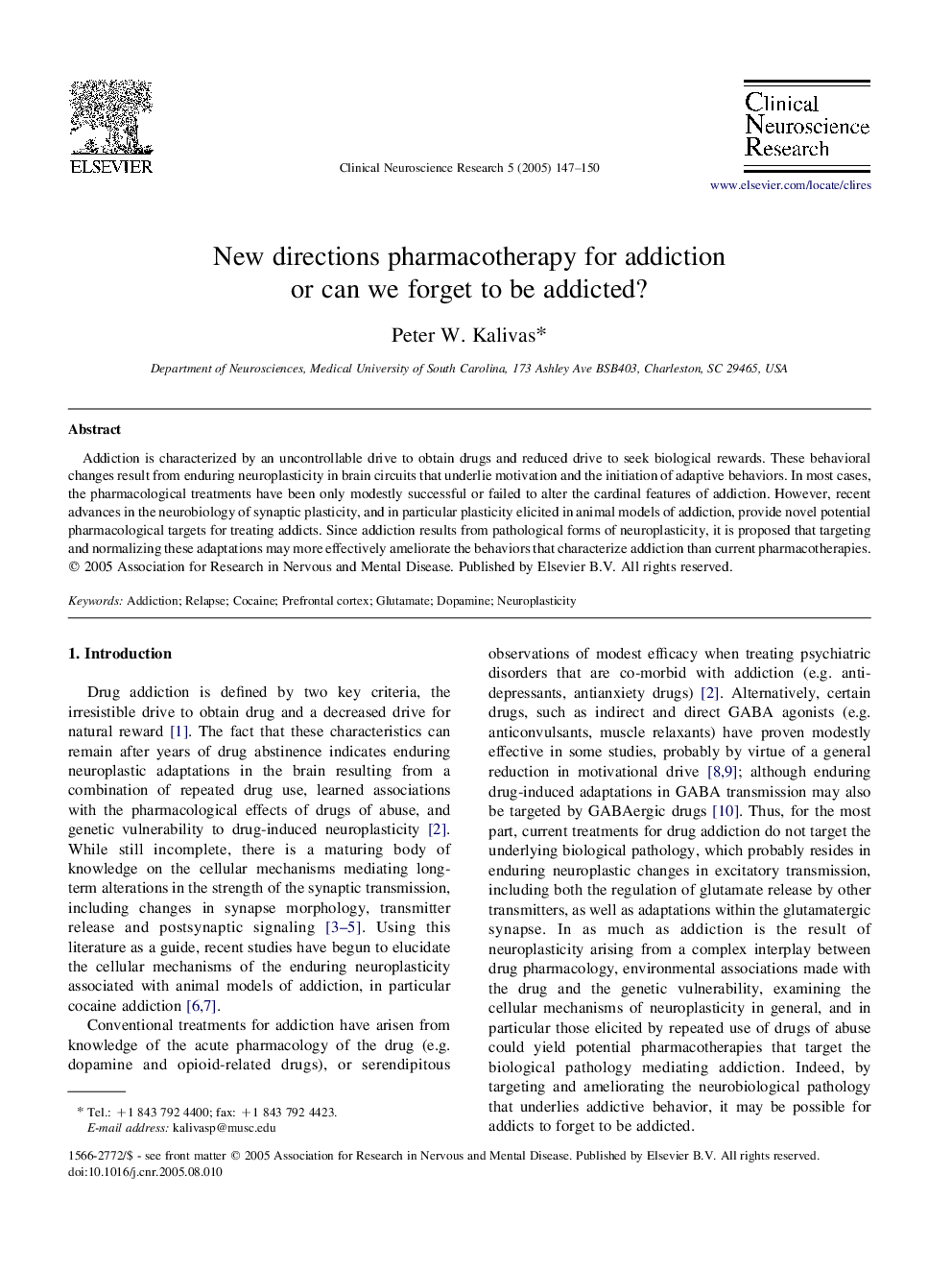| Article ID | Journal | Published Year | Pages | File Type |
|---|---|---|---|---|
| 9189890 | Clinical Neuroscience Research | 2005 | 4 Pages |
Abstract
Addiction is characterized by an uncontrollable drive to obtain drugs and reduced drive to seek biological rewards. These behavioral changes result from enduring neuroplasticity in brain circuits that underlie motivation and the initiation of adaptive behaviors. In most cases, the pharmacological treatments have been only modestly successful or failed to alter the cardinal features of addiction. However, recent advances in the neurobiology of synaptic plasticity, and in particular plasticity elicited in animal models of addiction, provide novel potential pharmacological targets for treating addicts. Since addiction results from pathological forms of neuroplasticity, it is proposed that targeting and normalizing these adaptations may more effectively ameliorate the behaviors that characterize addiction than current pharmacotherapies.
Related Topics
Health Sciences
Medicine and Dentistry
Clinical Neurology
Authors
Peter W. Kalivas,
